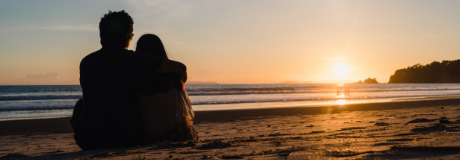For Madam N, being diagnosed with stage 2 breast cancer at the age of 42 brought on more than just fears over her own health. As a mother of one, the business owner was also overcome with worry for her young daughter.
As her treatment journey began, however, her child became her source of hope and motivation. She shares her experience here in hopes that it encourages others in the same shoes.
What went through your mind when you first discovered that you had breast cancer?
Madam N: My daughter was just nine years old and she is my only child. I was worried about what would become of her if something happened to me — how would she cope as she grows up?
How did you break the news to your family, and especially to your child?
I didn’t want to hide anything from her, but I also didn’t want to scare her with the worst-case scenario. So I just explained to her what to expect from my surgery and chemotherapy. I told her that I may lose my hair and feel very tired. I wanted to mentally prepare her so that she wouldn’t think I was ignoring her during my treatment. She was very cool about it.
What adjustments did you have to make as a parent fighting breast cancer?
During my treatment, I was on medical leave to rest at home, so my daughter actually saw me more often. Though it was not a walk in the park, the side effects that I experienced from chemotherapy were also manageable, and I was still able to be there for her.
My husband showed me a lot of support during my treatment. He took over some of my parenting duties, like disciplining my daughter and helping her with schoolwork, when I was tired.
My mum lives with us and we have a helper, so not too much has changed at home. I would say, if you can afford to get help, do it! Having an extra pair of hands around the house when you are fighting cancer makes a difference. At least you wouldn’t have to worry about keeping the house clean or making sure that your family has clean clothes to wear. You can rest whenever you need to.
How did your child cope during your breast cancer journey?
I didn’t let cancer stop me from living life and I didn’t act like I was very sick around her. I continued to work and have parties at home, so life was quite normal and I was still there for her.
During my treatment, we had to cut down on family outings and eat at home more often, but my daughter was understanding. Instead, we did fun things together at home like having movie marathons. I also encouraged her to join school activities and brought her to play dates.
My daughter is the ‘cool’ type. She doesn’t really show her feelings, so sometimes I will ‘test the waters’ to gauge how she’s coping. When I lost my hair, I would ask her if I should wear a beanie or wig to pick her up from her friend’s home. She would say, “Oh, you can wear your wig”. That was how I knew she was probably not ready to explain my cancer to her friends and I didn’t push her.
How did breast cancer change you as a parent?
In the beginning, I wanted my daughter to grow up very quickly. The thought of dying and not being able to watch her grow up scared me, so I expected her to be obedient and to know what to do at all times. I became quite impatient. But I realised that this was wrong and I wasn’t being fair to her. So I want to share with other parents who have cancer — your child still deserves to be a child. Don’t rush them to grow up.
I also realised that I didn’t want my duty as a parent to end with cancer. I want to be around for my daughter until she’s independent and has her own family, so this keeps me going in my fight against cancer.
How did breast cancer change your relationship with your child?
We are closer and we spend more time together now. I also tell her ‘I love you’ more often. I have always done so but these days, I would ask her, “Did mummy tell you I love you today?”
I just want to remind her again and again.
What advice do you have for other mothers who are going through this journey?
Be patient with yourself and with your loved ones.
When people offer you help, take it! There’s nothing wrong with receiving help. For example, some of my good friends would offer to take my daughter out and I let them because I know that she would enjoy herself more than staying home with me.
Don’t worry about what is going to happen and what you can’t control. Channel that energy into spending quality time with your family members and children instead.

